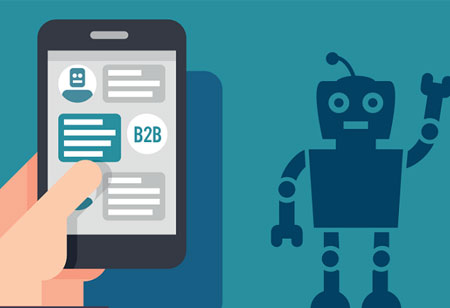THANK YOU FOR SUBSCRIBING
Driving Customer Service with Chatbots
Chatbots are often suited to frequent use cases where the responses are often similar, the high volume creates a business case to automate the response, and free up human agents to deal with more complex issues.

By
Apac CIOOutlook | Thursday, February 07, 2019
Stay ahead of the industry with exclusive feature stories on the top companies, expert insights and the latest news delivered straight to your inbox. Subscribe today.
Chatbots are powered by AI, machine learning, and NLP to generate smart responses to the consumers’ query online. The communication between a consumer and chatbot takes place through the chat interface. The traditional way of reaching service executives is now shifted to automated chats from connecting over the phone. Depending on the quality of customer service the company provides, the customers value a brand. Now, chatbots are being adopted in most of the companies that help them to improve customer service experience and boost sales rate.
The global market value for chatbots is expected to reach $1.23 billion by 2025, at CAGR of 24.3 percent, predicts a report by Grand View Research. These statistics demonstrate that Chatbots are the new gene technology now and in the future. By 2020, at least 80 percent of the companies are expected to adapt their own chatbot to handle consumer queries.
Check this out: Top Machine Learning Solution Providers- Ekkono Solutions, Faction XYZ, JUMP
AI Chatbots are known for their less-error capability while answering user queries. Chatbots are designed in a manner that provides automated responses to the customers’ queries quickly, and accurately. But sometimes Chatbots are vulnerable to cyber attacks that might help hackers to attack websites and steal information like e-mail addresses or website content. For any chatbot, strong network security is important to secure them from security hacks.
Chatbots are often suited to frequent use cases where the responses are often similar, the high volume creates a business case to automate the response, and free up human agents to deal with more complex issues. Chatbots influence marketing strategies; a chatbot works as a robotic data analyst; it collects customers’ trends such as recent searches and most asked questions. This helps businesses concentrate more on targeted campaigns.
Chatbots are believed to be a promising advantage, but people still prefer to talk real person at the other end of the connection. There is a range of chatbot platforms for different industries, such as e-commerce, retail, banking, leisure, travel, and healthcare. They can reach a wide audience in messaging applications and be more efficient than humans. In the near future, they are also expected to become a useful tool for collecting information and help companies in decision making.
See Also: Top Chatbot Solution Companies





